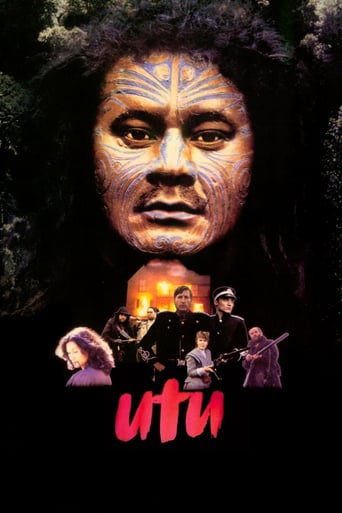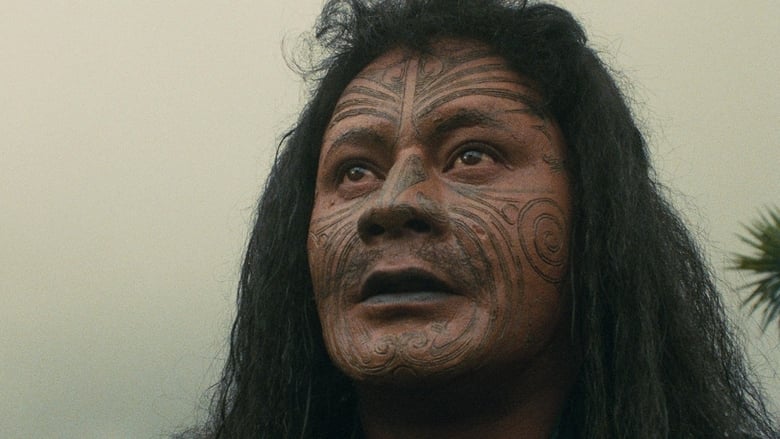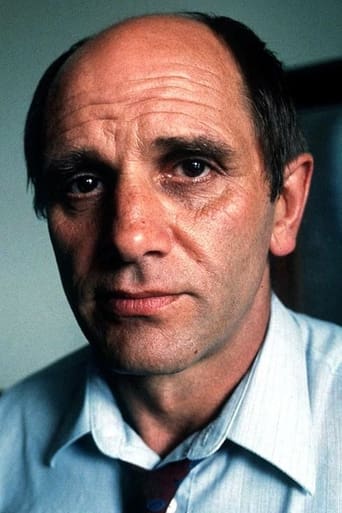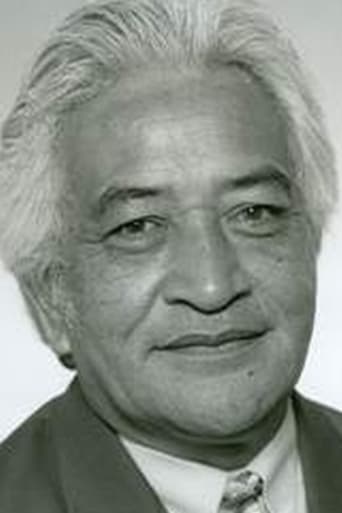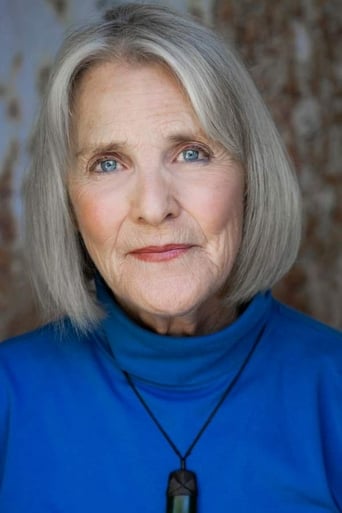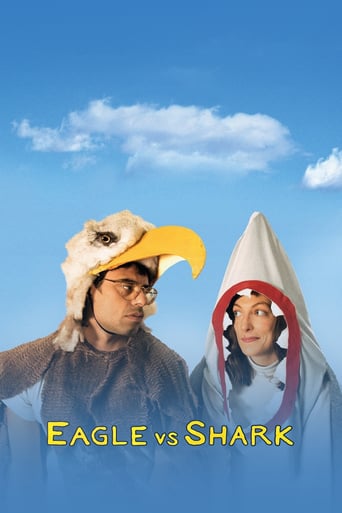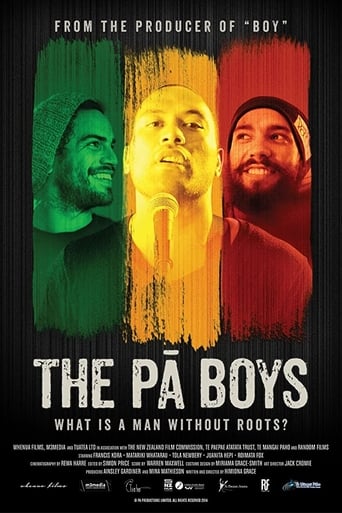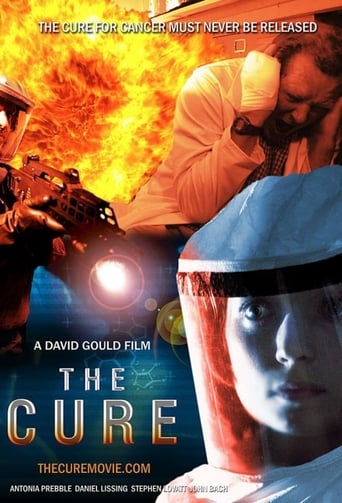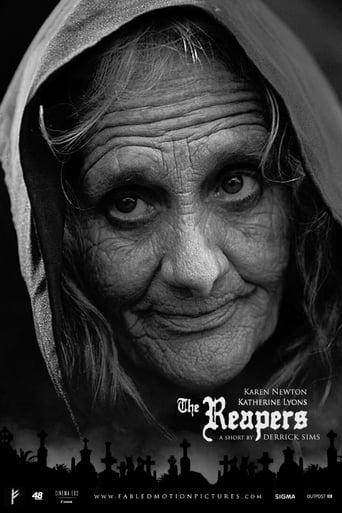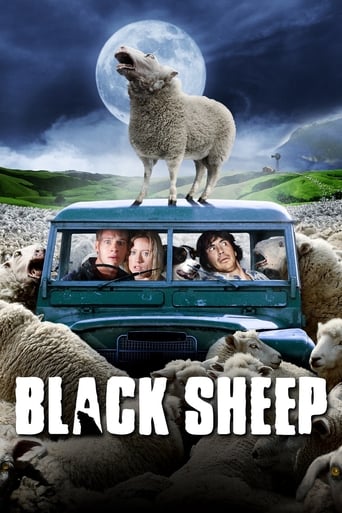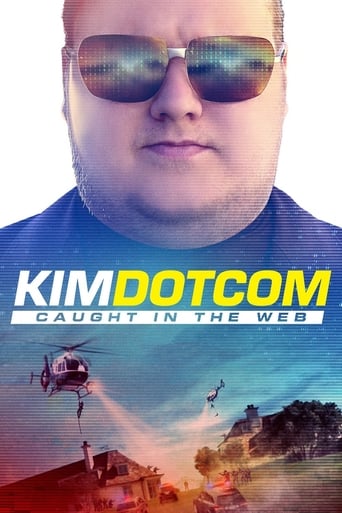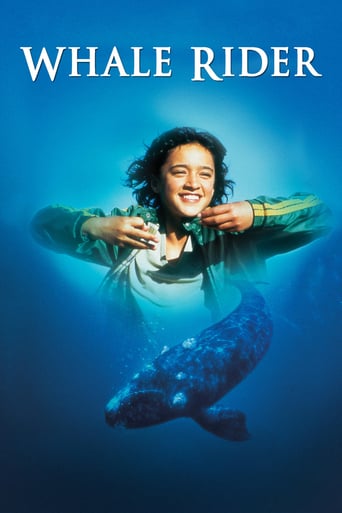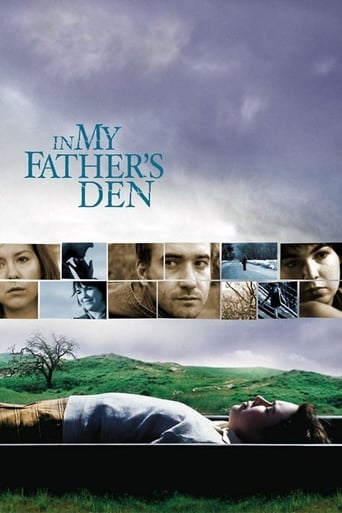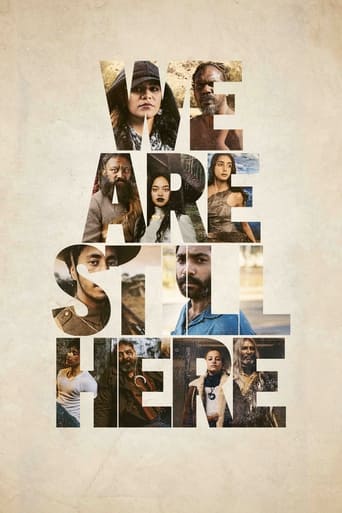Utu (1984)
In New Zealand in the 1860s the native Maori people fought the British colonials to keep the land guaranteed to them by treaty. The warrior Te Wheke fights for the British until betrayal leads him to seek utu (revenge). The settler Williamson in turn seeks revenge after Te Wheke attacks his homestead. Meanwhile Wiremu, an officer for the British, seems to think that resistance is futile.
Watch Trailer
Free Trial Channels
Cast


Similar titles
Reviews
The greatest movie ever made..!
Sadly Over-hyped
I gave this film a 9 out of 10, because it was exactly what I expected it to be.
Unshakable, witty and deeply felt, the film will be paying emotional dividends for a long, long time.
Leonard Maltin, practically the only film critic who has written a review of this film, states that it is "downbeat, dull, and full of stereotypical characters - without the compensating power of Australia's not dissimilar 'The Chant of Jimmie Blacksmith.'" It's a shame that the movie has only this professional opinion from Maltin and no others, even though Maltin is a critic with whom I usually agree. Being one of the few people who has probably seen both films, I have to disagree with Maltin's assessment. While "Chant..." was a very serious meditation on the nature and effects of racism, this film was intended as a lighter, more entertaining Western-type movie filled with sudden dark humor - the kind of macho, action-filled movie that director Walter Hill in the U.S. used to make years ago. I don't think it aspires to be the masterpiece that "Chant..." was, but that does not diminish its qualities.Really, for a simple Western revenge movie, there are several interesting themes here. The first is the difficulty of maintaining a conflict between two peoples living in such close proximity. The British settlers, and even members of the British army, seem to be social neighbors with the Maori natives - trading, speaking each other's languages, and even joining each other's armies. Not only does this make pure hatred nearly impossible, but makes it difficult to accurately assess the motives of the people around you. There is something universal in this theme - this may be one of the reasons the U.S. had such difficulty in the Vietnam War, in that it was both relying-upon and fighting a local people.The second, more obvious theme, is the self-perpetuating effects of revenge, which never seem to dissipate. Every character here seems to have their own personal obsession with some kind of individual revenge. Ironically, the one character who seems the most internally-conflicted and the one with the most to hate - a socialized Maori who has learned English and French and even joined the Queen's army, witnessing atrocities on both side - is the only one who can carry out "without prejudice" a formal military execution.I somewhat understand why Maltin disliked this movie. A possible flaw is that there is almost no expository on how the character Te Wheke metamorphosizes from a loyal British Army lance corporal to a heavily tattooed, brutal Maori warmonger who will kill anyone who gets in his way. But on the other hand, this movie is not a character-study of Te Wheke, it is more of an essay on the futility of pure revenge, or "Utu." Really, the best reason to see the movie is its technical qualities. Director Murphy has a real kinetic feel for visuals - like Scorsese, keeping his camera constantly moving among the chaos of 19th century guerilla warfare. The acting is generally good, and the feel for the New Zealand wilderness is excellent. Yes, this movie could have been better, and probably should have been better given the greater seriousness which this subject matter deserved. However, it's worth a rental if you can find it. And if you're not a New Zealander, I recommend watching it twice; it is very fast-paced on the first viewing and difficult to decipher - it gets better the second time.
While this movie may somewhat accurately depict callous British imperialism towards native populations, and is sympathetic to the trod-upon Maori, "Utu" (Sumerian for sun, but for the Maori it means revenge) ultimately fails as a story and film because so few of the more prominent foundations that the film lays at the beginning are actually paid off at the end.For instance, we see the settler Williamson (admirably played by Bruno Lawrence) understandably go mad in his quest to avenge his wife's death and loss of his home at the hand of Te Wheke, going so far as to construct a frightening, custom four-barrel shotgun. Yet does he actually end up using it in the end? He finally gets the opportunity to execute his wife's killer, only to inexplicably back down and instead allow a Maori soldier working for the "pakeha" (non-Maori, mostly for white man) to do the deed, apparently mesmerized by Maori chanting and suddenly becoming sympathetic to a culture and cause that is not his own.Lt. Scott (well played by Kelly Johnson) is torn between his New Zealand roots (a "pake" born on the North Island) and his adherence to military life, but understandably seeks his own revenge against Te Wheke for the loss of his Maori lover. As we've seen in other films about the long arm of British imperialism, a soldier's military training ultimately wins out in the end. Yet he too backs down from his final judgment and chance to avenge, to allow the Maori soldier (revealed to be Te Wheke's brother) to perform the execution of Te Wheke.Te Wheke himself is driven mad by his vengeance against his former employer (the military), when he came across the destruction of a Maori village at the beginning of the film. At first he is depicted as a cunning warrior out to save his fellow Maori, but he makes some very stupid mistakes in the end, ones that defy explanation and logic (unless you buy the "revenge always trumps intelligence" line). The soldiers are thus shown as ultimately superior intellects in warfare, and while they may have been, Te Wheke was taken so easily, almost casually so, after months of successful evasion. And why did he turn upon his own people? Does madness make him do this? If so, it's too easy and ultimately unbelievable.As a prior reviewer posted, why was the Maori village destroyed at the beginning of the film? Should the viewers assume that this is because the British are on a campaign to wipe out the Maori to take their land? Or was it done as some sort of vengeance for supposed affronts to military authority? But this is never explained, so we must take it at face value that the British imperialists were pigs, yet superior nonetheless to the blundering Maori.Bravo to the filmmakers for exploring the pointlessness and waste of British imperialism and of the concept of revenge, and for showing the dichotomy of Maori killing their own kind in service to a foreign military (as was seen done in India, Africa and countless other island nations and countries during the 1800's British imperialistic campaigns throughout the world), and in alluding to the latent homosexuality of one British officer, further denigrating the indigenous culture they are trying to oppress.But moviegoers seeking to learn more about Maori culture and history should definitely look for other, more competent and complete sources.
Utu is set during the Maori Wars of the 1850s and is the first contemporary film about this period in New Zealand history, although it definitely shows the influence of Rudall Hayward's earlier epics. It set out on the difficult task of keeping historical accuracy whilst incorporating modern day sensibilities. Murphy's basic message, that by working together the Maori and Pakeha will succeed in forming a better New Zealand, has obvious inferences to the modern day racial tension; the film being released around the time of the controversial Springbok tour of 1981, which had led to widespread violence. This message, however, is by no means clear cut, and throughout the film we are shown the situation from many differing perspectives, 'the film's shifts in sympathy, and refusal to identify with one group, could be seen as honestly reflecting the national uncertainty. ' There are definitely many points of view and racial origins to be taken into account, and the main characters come to symbolise either their race, or a particular group, both in the historical context, and the modern equivalent. So by examining these characters more closely it is possible to understand the different ideas that Utu evokes. The two most extreme characters on either side are Elliott, the British officer, and Te Wheke, who becomes the leader of the Maori fighting against the British led troops. There were many Maori groups who were heavily involved in the production of Utu , lending credibility to the Maori characters. Initially our sympathies lie with Te Wheke, when he discovers a village of his tribe has been killed, and the powerful scene where he compares the colour of his hand first to that of a dead Maori, and then to the hand of the white soldier he has been alongside. It is at this point where his transformation begins, and is followed by the tattoo scene, again it is very powerful, and along with his army's dress, strongly echoes the style of the Maori gangs of the 1980s. However Te Wheke does not keep the audience's sympathies for long as he becomes ultra violent, even ordering the deaths of some of his own followers, and by the time of his trial many characters are seeking 'utu' against him. Te Wheke is however not made to be a representative of the Maori; he is 'largely disowned by the race that produced him .' So, if Te Wheke is to blame on one side, it is clearly Elliott who shoulders the responsibility on the other. His extreme racism is reinforced throughout the film, from his condescending treatment of the Maori fighting on his side, to the continual, and it is assumed deliberate, mispronunciation of Te Wheke's name. Scott, on the other hand, the other main white character, himself a colonial, is, along with Wiremu, portrayed as an ideal New Zealander. Reid however takes a more cynical view of this, 'as Utu tells it, the increasingly easy-going Kiwi joker Scott, with his love for Kura, is free of any racist taint; while the pommie officer is a racist bastard. Which is very flattering for any Kiwi jokers watching the film. ' Whether this view of the British as opposed to the colonials is entirely accurate is questionable and the apparent desire not to attach anything negative to white New Zealanders isn't really in keeping with what might be expected, but is probably what the audience at home would have wanted. Wiremu is the character that is portrayed as the 'good' Maori, in stark contrast to his brother Te Wheke. If the main thrust of Utu is indeed to 'explore the subversive idea that Maori and Pakeha have more in common with one another than with the British ' then the character of Wiremu is a vital one. It is he who kills both Elliott and Te Wheke, the two most extreme characters, and he is well educated and willing to work alongside the British, seemingly for the good of the country as a whole. Disappointingly, we do not get much of an insight into his personality, and although his actions are memorable, such a complex character becomes, 'the most maddeningly under-developed character in the film. ' Utu was the first major New Zealand film of the 80s to tackle the issue of race, and whilst its setting is an historical one, its release came at a very difficult time for race relations in New Zealand. It has been criticised for being over complicated and not identifying more strongly with one point of view. Despite these negative comments, Utu is still very important in terms of how race is portrayed in New Zealand films, and, back in 1982, really brought the Maori into the consciences of movie-goers and filmmakers alike.
To me, a good movie uses the introduction to snap your tether of disbelief; the middle to entertain you and deliver you to the end; and the end to make it worth the journey.This movie does it better than any other movie that I've ever seen.The story is about revenge ("utu"), how the cycle starts, how it changes, and the price to be paid to end it.The time and the place are not important, though the movie is beautifully shot and historically valid. The action is only a device to tell the story, though it is compelling and riveting. The subject matter is profoundly serious, though there are elements of comedy even during the most serious scenes.Overall, this is one of the best constructed films that I have ever seen. The pacing of the scenes, the respect for the intelligence of the audience, the dark endearing humor, and the impact of the message all make this one of my favorite movies.The director's cut provides additional scenes that explain some of the details that are missing from the original, but these extra scenes foul the sharp pacing that makes the studio cut work so well.

